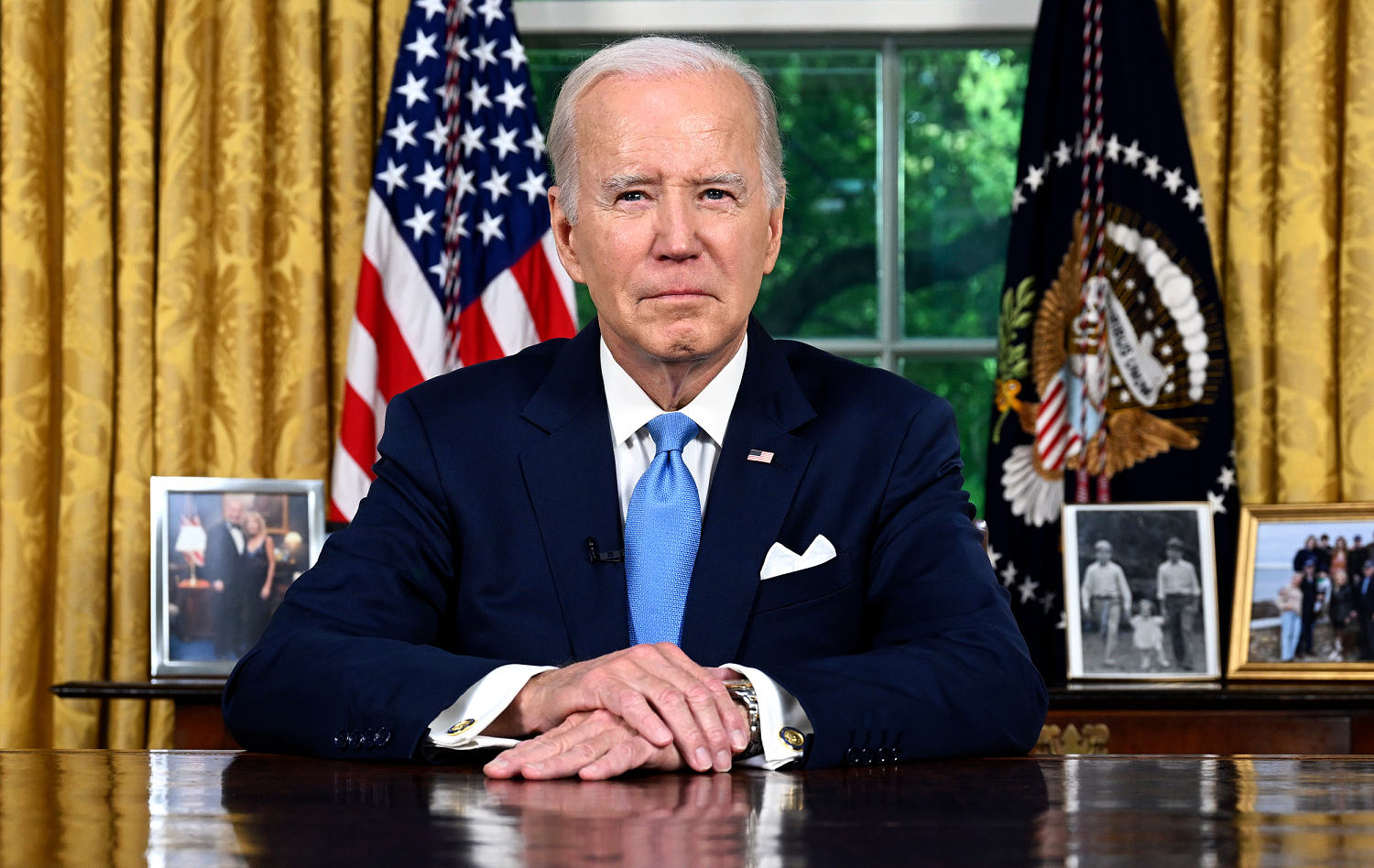[ad_1]

WASHINGTON — President Joe Biden will give a rare prime-time address Thursday explaining why he believes it’s crucial for Israel and Ukraine to win the respective wars they’re fighting, as he looks to build support for a hefty aid package aimed at strengthening both countries.
Biden’s Oval Office speech follows a quick visit to Tel Aviv on Wednesday, where he met with Israeli leaders and discussed the next phase of a counterattack in Gaza that began with an aerial bombardment and may now shift to a risky ground incursion.
Follow here for Israel-Hamas war live updates
As with his trip to Ukraine in February, Biden ventured to an active war zone to show his solidarity with a U.S. ally battling an enemy that wants to wipe it out of existence.
One of Biden’s aims will be to explain to Americans how the two foreign conflicts “connect to our lives back here,” Jonathan Finer, a White House deputy national security adviser, said in an appearance Thursday on MSNBC’s “Morning Joe.”
He will use the address to lay out “how support from the American people and the Congress, frankly, is essential to maintaining this national leadership the United States is showing, to steer these conflicts in the best possible direction.”
Biden’s remarks will seek to put pressure on Congress to approve a supplemental funding package that his administration plans to submit as early as Friday. Biden may request $60 billion in aid to Ukraine and a total of $40 billion for Israel, Taiwan and the U.S.-Mexico border, people familiar with the matter told NBC News.
Biden is in a weakened posture as he tries to shape public opinion toward the wars. A CNBC poll taken this month showed that only 31 percent of Americans approved of Biden’s handling of foreign policy, compared to 60 percent who disapproved.
He’ll be speaking to Americans who appear to be tiring of the war in Ukraine that started in February 2022 with Russia’s invasion. A Reuters/Ipsos poll earlier this month showed that 41 percent agreed with the statement that the U.S. should provide weapons to Ukraine — down from 46 percent in May.
The U.S. has sent about $44 billion in security aid to Ukraine since Russia first rolled its tanks toward Kyiv, according to the State Department.
Ahead of the speech, Biden spoke to Ukrainian President Volodymyr Zelenskyy about the status of the war with Russia, according to a White House readout of the conversation.
“President Biden underscored the continued strong bipartisan support in the United States for Ukraine’s defense of its sovereignty, territorial integrity, and democratic future,” according to the White House.
At home, Israel’s counterattack has already triggered angry demonstrations from protesters demanding a cease-fire. On Capitol Hill, about 300 protesters were arrested after massing inside a House office building Wednesday in a demonstration calling for an end to hostilities. Rabbis were among those who joined in the protest. Some of the demonstrators wore T-shirts reading: “Jews say ceasefire now.”
What’s more, a State Department official working in a bureau overseeing U.S. arms sales resigned in protest this week, citing America’s “continued — indeed, expanded and expedited” supply of weapons to Israel as it conducts its counterattack.
Josh Paul, director of congressional and public affairs in the bureau, wrote in a resignation letter: “I believe to the core of my soul that the response Israel is taking, and with it the American support both for that response, and for the status quo of the occupation, will only lead to more and deeper suffering for both the Israeli and the Palestinian people.” Paul’s resignation was first reported by HuffPost.
An Oval Office address is a powerful forum that presidents typically reserve for national crises or messages of overriding importance. It’s the stage John F. Kennedy selected to explain the Cuban Missile Crisis, and the one that George W. Bush chose to reassure a frightened nation the night of the 9/11 attack.
In Biden’s case, he is signaling that America’s foreign policy interests are tethered to two distant wars. Ukraine’s defeat would embolden Russian President Vladimir Putin and do away with an independent democratic country on NATO’s doorstep, Biden has argued.
And the Middle East conflict presents a painful dilemma with no guarantee about what comes next even if Israel chases Hamas out of Gaza. An Israeli ground assault in Gaza puts Palestinian civilians in a crossfire with nowhere to escape. The densely populated coastal enclave amounts to an “open air prison,” as Aaron David Miller, a former State Department official specializing in the Middle East, put it in an interview.
Flying home from Israel on Wednesday night, Biden told reporters that he had spoken by phone to Egyptian President Abdel Fattah El-Sissi, who had agreed to open a border crossing into Gaza that will permit humanitarian aid to go through and assist the civilian population. But if Hamas “confiscates” the aid, Biden added, the flow will stop.
Biden also made an oblique suggestion that he is pressing Israel to find an alternative to a ground attack that could result in large numbers of civilian casualties.
Asked if Israel might forgo a ground incursion, Biden said: “We had a long talk about that and what alternatives there are.”
His speech Thursday night is a chance for him to flesh out what he has in mind.
[ad_2]
Source link
